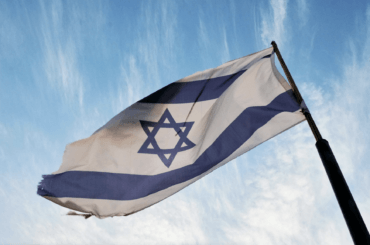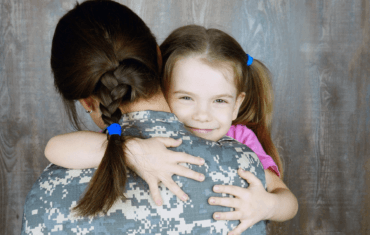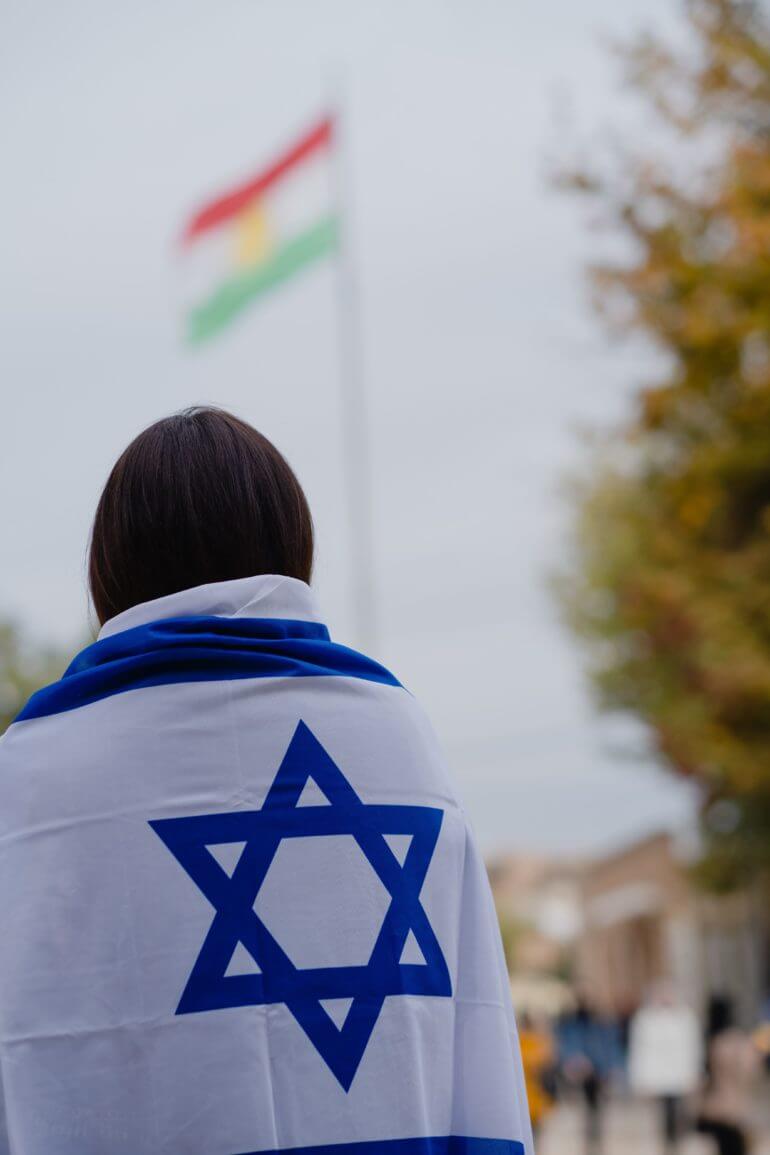
I Just Returned from Israel and Will Never Be the Same
My younger sister had her first baby a few weeks ago in Israel. We’re very close and I was really hoping to be there for her at this time, even just a little bit if I could. With the war, I wasn’t planning to go anymore with my husband and kids, as we initially wanted to, and my parents also decided not to go. I know firsthand just how difficult and lonely those early days can be and knew how special it would be if we could have that quality time together, so with my husband’s blessing, I decided to go by myself for a few days during the week.
I have to admit, I was nervous. I live in America, and even though I’ve been to Israel many times and feel incredibly connected to our Jewish homeland, it was scary to watch from afar. Was flying into a war zone the best decision?
In the end, I spoke with a close Rabbi who convinced me it was. The strength I could give to the Israelis by going would make a difference, not to mention the strength I would be giving my sister.
I also put my faith in Hashem. I knew intellectually that Israel was no less safe than America. Anything could happen anywhere — it’s all in Hashem’s hands. It was that mantra that I clung to throughout the journey.

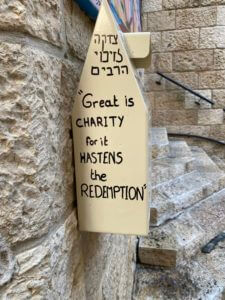
To backtrack, and for context, I’m a baal teshuva, meaning I became religiously observant later in life. I went to Israel for the first time in college on a Birthright trip and subsequently went back two more times during my college years. In the ten years that have passed since I graduated, I have been back numerous times, taking time to study in seminary and visit with my husband after we got married, just to name a couple.
It’s a place that is home to our first date and where we spent the first few months of our marriage. It’s a place that is the day-to-day home for so many people that I love and one that’s been home to me whenever I needed or wanted it to be.
When I went back this time, I recognized my home, but it instantly felt different. Even upon exiting the plane, the tears started to fall. I saw signs guiding travelers toward the bomb shelter, just in case. I saw the photos of the hostages lining the familiar path to passport control, the ramp in Ben Gurion airport that always signals that you’ve finally made it home.
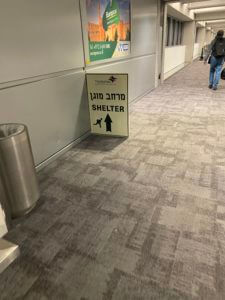
I looked them in the eyes, knew that now, I was that much closer to them physically, and cried for their pain, the pain of the Jewish people.
Every step felt different. A look into the eyes of the IDF soldier outside the airport, and I felt the pain. I felt the sadness. I felt it in the air.
On the drive to Jerusalem, I looked out the window to the tunes of Ishay Ribo and Mordechai Shapiro, noting the myriad Israeli flags hanging from balconies and windows. Even though I was in the land of Israel itself, you could feel its people supporting it from within. You could feel them digging deep within themselves, putting aside time to grieve and find a strength they didn’t know they had.
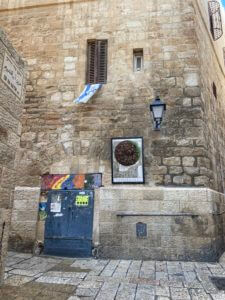
When I got to Jerusalem, my first stop after dropping my bags off was the Old City and Kotel. It was early — just 7:30 a.m. (thought it was a drop too early to walk in on a new mom and her newborn!) so I spent some time on my own walking and davening. Yes, it was early on a random Tuesday, but the Old City was eerily quiet. In the void I felt the souls of those who are being held hostage right across the border. I felt the pain of the souls too soon departed. I felt the agony of a country normally bustling with tourists, now managing to survive economically almost solely with its residents.
I saw those going through their morning routines — mothers and fathers still dropping their children off at school, yeshiva bochurim (students) off to their learning, bakeries still opening up their shops.
“How are you doing?” I asked one shopkeeper. “Baruch Hashem,” he replied. In the people, a steady resilience, a desire to move forward, a need to look up amidst the destruction.
Later that morning, I made it to my sister. After a joyous reunion, we went on a walk through her gorgeous neighborhood of Emek Refaim. At bus stops and on the entire sides of trucks, I saw the hostage posters. On cars, I saw signs and stickers that read, “Together, we will be victorious.” I felt the Israeli spirit at every turn.
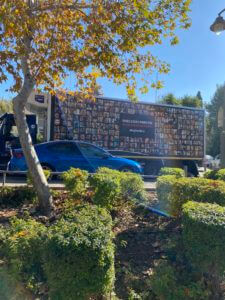
Later, when I had to take a cab somewhere, the Israeli cab drivers were kind. They didn’t get frustrated. There was a calmness in their manner that honestly, you don’t always see when the Israeli grit is at the surface. While there was that harshness in the air, there was a softness in its people. A way without words of saying, “We know, we’re in this together.”
The next morning at breakfast at the hotel I was staying at, I saw a beautiful woman holding a baby at the coffee bar. “Mazel tov,” I said. She initially spoke Hebrew then switched to English when I looked confused. She said, “I don’t even remember the birth four months ago…so much has changed.” She was displaced from the north with her two children, husband and relatives. “At least I have my husband with me,” she shared.
The little things were the big things. While she yearned to go home, she knew others didn’t have a home to go back to, didn’t have a family to go back to. As a mom of two little ones myself, I felt for her, how hard it must be to care for these two little people every day without a routine and home of your own. Yet, I felt her gratitude as well, simply at having her family together.
On a walk on my final day with my sister, we passed a school in Jerusalem. There was a huge poster outside with photos of the hostages and signatures in a large white space in the middle, intendedly from the students.
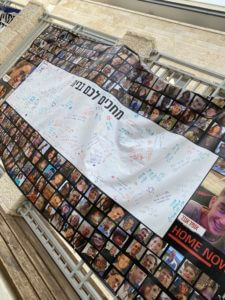
As we passed, I saw signs by the door saying “Welcome home Maya!” I immediately thought one of the hostages must go to school there. I turned to a girl, maybe around 16 or 17-years-old, walking out near us at the same time and said, “Are those signs for one of the hostages?” She said yes, that the girl Maya was in her class and was back. I was stunned. These people weren’t just stories before, they were real, but being in Israel, walking around with their classmates made it all that much more tangible.
“How is she?” I asked. She said, “You never know of course, but she loves learning and immediately came back and sat in the front of the classroom to resume.” This, the strength of the Jewish people. The resilience. The school walls looked familiar and I realized that the hostage was Maya Limberg. A video was going around on social media of her classmates and friends welcoming her back with a song.
“Yes,” the girl who we learned was named Rachel shared. “We each learned a different part to the song to welcome her back.” It’s an incredible video that fills me with tears each time I watch it. This is how the Jewish people celebrate together, as one body, one soul, beating and singing. When one returns home, we rejoice.
We’re broken as a people right now. We still have so many hostages that haven’t come home to their families. There is a steady stream of news of soldiers dying in Gaza. We’re still mourning the initial destruction and terror of October 7. We are not okay. Yet at the same time, our brokenness is making us more whole as a nation. We are relying on each other in ways we never had to before. We are feeling each other’s pain more deeply. We are less judgmental. We are more sure of who we are.
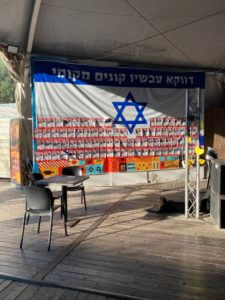
On this visit, I felt the incredible juxtaposition of feelings humans are capable of experiencing. Walking around, thinking about what happened, I felt emptiness, I thought about the lives that aren’t in this world anymore. I feared what was to come. With my sister though, I felt new life. A birth of an entirely new soul that has the opportunity to bring joy into the world. While davening, my prayers have never felt more potent. As I heard other women’s tears around me at the Kotel and Kever Rochel, I cried with them. Our hearts synched up as we poured them out to Hashem.
Finally, I felt hope. A nation that’s been through so much pain before, so much devastation, still stands. Truth will always prevail, good will always win over evil. We may have a new stain on our heart to carry, but carry we always will.
If you found this content meaningful and want to help further our mission through our Keter, Makom, and Tikun branches, please consider becoming a Change Maker today.




